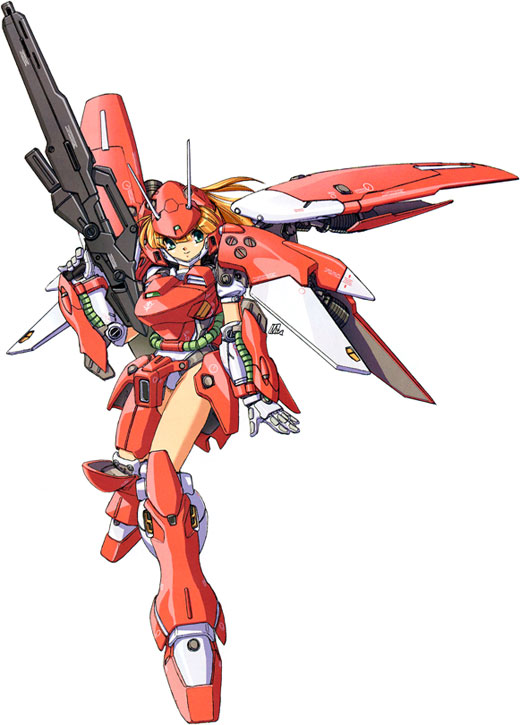It will come as no surprise to the reader that Upotte objectifies girls. That is, after all, literally the premise of the show: that girls can actually be guns. But perhaps the truly artistic element of its premise is that statement in reverse: that guns – inanimate objects – can be girly.
Perhaps the teacher’s dilemma is that these guns cannot be treated as such – they have feelings of shyness and inadequacy, and are embarrassed easily, just like ordinary girls. Rather than showing the girls responding well to being treated like guns, the lesson of Upotte seems to be the backwards implication that guns ought to be treated more like girls: given leeway for their unique personality quirks, handled with care and delicacy, and generally treated with respect.
Making objects out to be girls is no real groundbreaker, nor is it even unique to Japan: Western soldiers have a long and storied tradition of giving fighter jets, bombers, guns, and other weapons female names. Sometimes this is played straight, but increasingly in modern works it is depicted as a matter of deranged comedy: witness the thug Jayne in Firefly lovingly calling his weapon “Vera” and offering to trade it for a woman, suggesting that he can’t really distinguish between the two. In Japanese works, moe girl versions have been made of an astonishing number of objects, ranging from trains to mecha. Very occasionally this has outright objectum sexual overtones, but more frequently it is merely a matter of whimsy.
Sexualized violence is nothing new in the fields of fashion or art, nor is it remarkable in anime. But the conflation of sex, violence, objectification, and middle school girls is especially troublesome. Of course the male lead is so herbivorous, so passive, so proper, that it does not occur to us that he might entertain violence on these girls. But to an outsider, or to one who does not take care to follow nuances, it almost appears as if the fantasy aspect of Upotte is that these are girls that the man does not need to feel bad about mishandling or mistreating, because they are really objects designed for the abuses of war.
To be sure, Upotte almost certainly does not intend any of these unfortunate implications. Though sexuality is repeatedly hinted at, whimsy, not transformation, is its goal. It is not a conscious commentary upon rape, war, or feminist empowerment. But to turn a phrase, Upotte is not even novel in its ludicrousness: the object-as-girl juxtaposition has been done with Akikan and its imitators already. Aside from some prettily drawn but poorly animated outdoor scenes, there’s nothing here worth watching.


